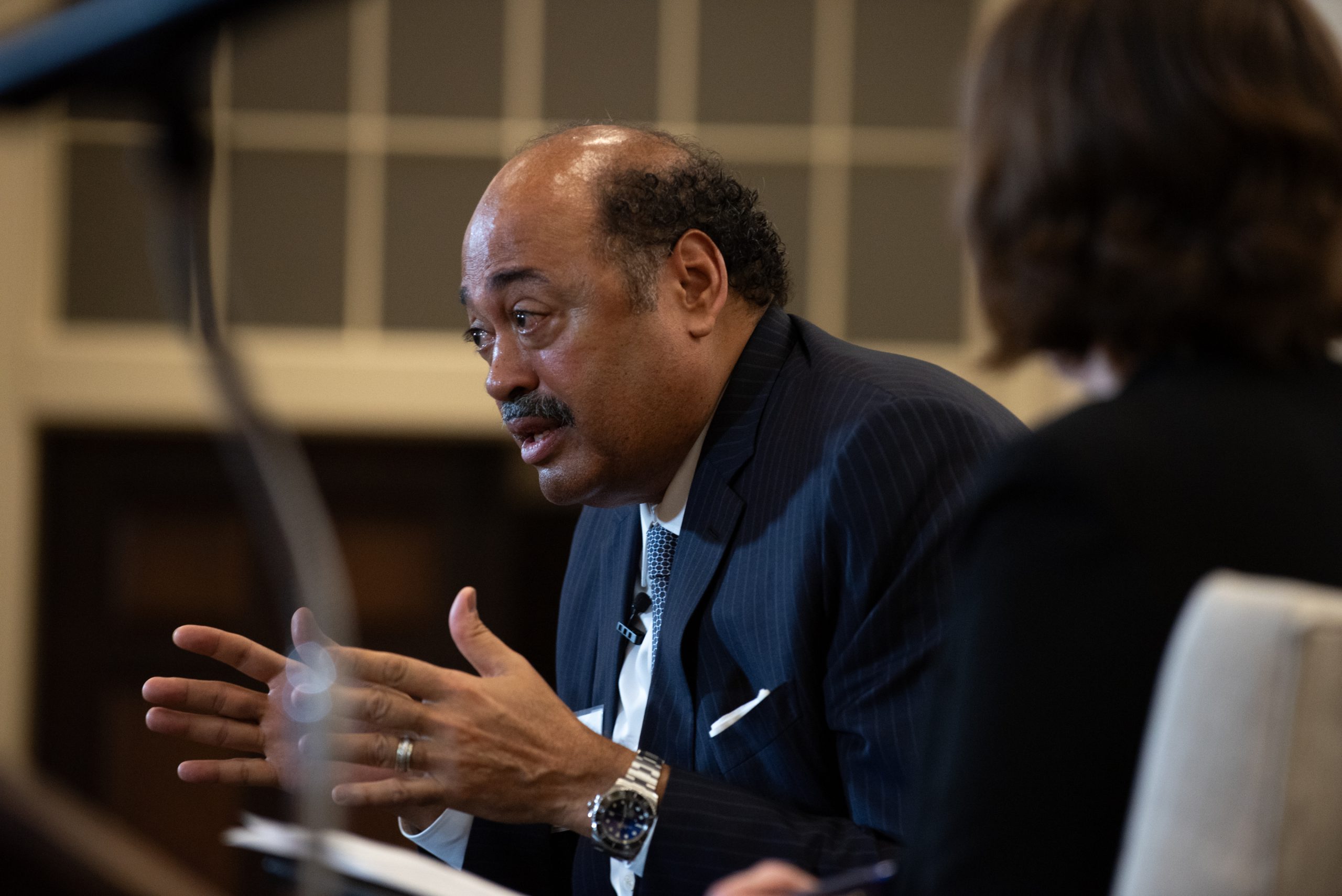“Be open to learning about new areas within the law” was one of the first pieces of advice I got upon being accepted to law school. I of course came to law school knowing education law was the specific area of law I wanted to go into after graduation. For a myriad of reasons, I also knew that my academic career would require a mix of courses that were not necessarily education-based but rather, education-adjacent. This left me wanting to attend as many events as possible. Which is hard to do considering I am an evening student who works a full-time job and many of these events are during the day. And while I was open to exploring various areas of the law, there were some I just knew were not up my alley.
Technology was one such area that I had zero interest in. The emails from the Institute for Law, Innovation & Technology (iLIT) were ignored. Like I said, with limited time, it was important to be selective in what I invested time into and without even bothering to open them, I dismissed them. And they were dismissed right until I sat in Fred Humphries’s 2024 Honorable Clifford Scott Green Lecture and listened to what he said in that fireside chat that showed me what I had been missing by ignoring those iLIT emails.
There were several reasons why I attended the lecture, but two that I think are important to share. The first reason is that growing up, my father was a law professor and often invited me to attend lectures hosted by the institutions where he worked. There were many great lectures I attended, among them several U.S. Supreme Court Justices including Chief Justice John Roberts, Justice Clarence Thomas, and the late Chief Justice William Rehnquist. Growing up, I was confident that I would become the first Black woman Supreme Court Justice (shout-out to Justice Ketanji Brown Jackson for taking that honor) and so I wanted to learn about the law from people actively engaged in various aspects of it and that’s just what these lectures did. Knowing the value of these lecture series, when I saw the email for the Green Lecture I put it on my calendar.
The second reason I attended the lecture was Mr. Humphries’s position as the Corporate Vice President, U.S. Government Affairs at Microsoft. I came to school with the goal of working in the federal government but maybe working in connection with the federal government was another path I might consider. I wanted to learn about his career path and how he had worked and earned his way to such a prestigious position and the title of his lecture, “Leadership as Legacy and Innovation” seemed like it might give me some food for thought. In the back half of my 1LE year, I’d already come to see how there was more than one way to approach improving education and I should learn from others who were doing meaningful work.
So, how did Fred Humphries convince me in one hour that technology was an area I might be interested in? It’s simple really, my firm belief as an associate professor is that access to a quality education is a right for all people independent of demographics and Mr. Humphries said technology is fundamental to advancing students’ lives and careers. And it was in that moment that I realized of course I should be more engaged in learning about technology. Having been a department head at my college during the pandemic, I had to work with faculty who had never taught online to help them build courses that would deliver a quality educational experience to students, regardless of the modality. But I also had to deal with the harsh reality that many of our students either did not have access to the technology to take online classes or did not know how to use the technology platforms the college used.
Building on his experiences and education, he talked about how minority students are not getting equitable access to science, technology, engineering, and mathematics (STEM) education and how technology can be the equalizer. Mr. Humphries uses his leadership positions at both Microsoft and Temple to facilitate innovation. As Mr. Humphries talked about his work with iLIT, I realized that I hadn’t given those iLIT emails a fair chance. They weren’t just about the “tech” side of technology but rather how the public is inequitably served by technology and the field of technology needs to be more diverse, inclusive, accessible, and equitable.
I walked away from Mr. Humphries’s Green Lecture with a new mission, well really just a revision to my current mission. Technology is in the orbit of education and to find the legal career that will help me improve equity and access to a quality education, I need to learn more about it. When I looked at the emails with all of the great things I’d missed out on and went to iLIT’s website I found myself a little bummed that I hadn’t realized the gem I had overlooked. But, I also found myself determined to take advantage of the resources and be a part of iLIT when I get back to campus in the fall.
Images from the 2024 Honorable Clifford Scott Green Lecture, featuring a conversation between Fred Humphries, Corporate Vice President, U.S. Government Affairs at Microsoft, and Dean Rachel Rebouché.


